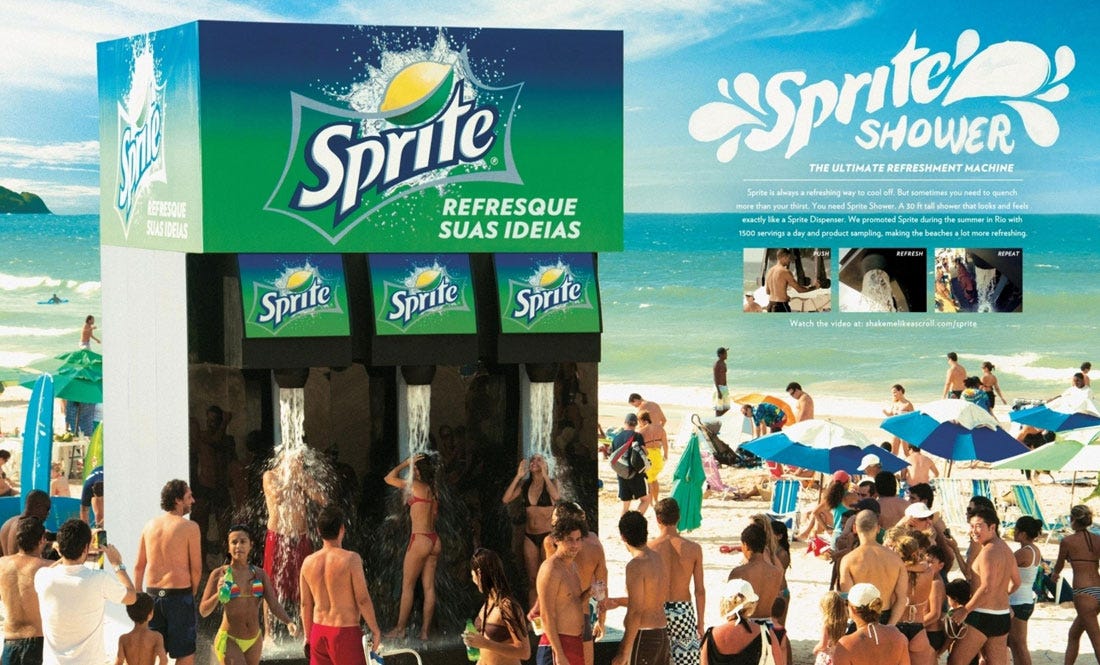Do you remember your first day in college?
Sensory Adaptation
Do you remember your first day in college? I don’t know about you, but I was more nervous than excited. I was not a fan of the idea of living away from home on campus with a bunch of strangers.
This is until I visited my campus…
As soon as I saw my campus, all my nervousness about living there flew away. The view was breathtaking, and the buildings were architectural marvels. On my first day, I remember thinking that I would never get used to the view.
But, the sad part is that I did get used to the view. After just spending 4 to 5 months, I got so used to the view and the incredible architecture that I didn’t notice them anymore. Although I felt terrible about it but isn’t this how life is? We get used to things, feelings or people, no matter how marvellous they are.
That sounds like a great life lesson, right? But, trust me when I tell you that this can be a great lesson in marketing as well. The whole getting used to something is a mental response to getting exposed to the same thing repeatedly. This phenomenon is known as Sensory Adaptation or Neural Adaptation.
According to the American Psychological Association, Sensory Adaptation is “a phenomenon in which receptor cells lose their power to respond after a period of unchanged stimulation.” In other words, the more you are exposed to a specific stimulus, the more you tune it out.
So, in terms of marketing, we can say that Sensory adaptation is a phenomenon that occurs when consumers get exposed to one ad for an extended period. Then, that ad no longer provides sensory input to be noted. This is why you have stopped noticing that fancy wallpaper you got for your room or the various colour lights. Instead, your subconscious takes over and clears the deck so that you can focus more clearly. And this is precisely why you can tune out thousands upon thousands of display ads so effortlessly.
As a consumer, Sensory Adaptation can be good for you. It will help you avoid the plethora of advertisements floating around on the internet. However, as someone who wants people to look at your service or product’s advertisement, Sensory Adaptation is terrible news.
So how can you deal with this bad news? The key to snapping consumers out of this dull haze is to offer something novel that they haven’t experienced before. The logic is that when we encounter something new, particularly when we aren’t expecting it, that object is immediately brought to the forefront of our attention and is also likely to be solidified in the memory.
Following are the two most established techniques to overcome Sensory Adaptation when it comes to your advertisements -
Experiential Marketing
Experiential marketing is a marketing strategy that directly engages consumers and invites and encourages consumers to participate in the evolution of a brand.
Rather than looking at consumers as passive receivers of messages, engagement marketers believe that consumers should be actively involved in the production and co-creation of marketing programs, developing a relationship with the brand. Consumer Engagement is when a brand and a consumer connect.
In other words, experiential marketing is the live, one-on-one interactions that allow consumers to create connections with brands. Consumers will continue to seek and demand one-on-one, shareable interaction with a brand. For example, it has been noted that there is a lot of impulse purchasing in book shops, where customers get to browse and read in the store.
Ambush Advertising
In this marketing strategy, an advertiser “ambushes” an event to compete for exposure against competing advertisers.
Most forms of ambush marketing capitalise on the prominence of a significant event through marketing campaigns that associate an advertiser with it, but without actually paying sponsorship fees to the event’s organiser to identify themselves as an “official” partner or sponsor.
An advertiser may engage in ambush marketing in “indirect” means—where the advertiser alludes to the imagery and themes of an event without any references to specific trademarks, or in “direct” and “predatory” means—where the advertiser makes statements in their marketing that mislead consumers into believing they are officially associated with the event (including the fraudulent use of official names and trademarks), or performs marketing activities in and around a venue to dilute the presence of “official” sponsors.
Ambush marketing is most common in sports. For instance, around the 2012 Olympics season, numerous brands launched their campaigns around the theme.
Some quick takeaways -
Sensory Adaptation is “a phenomenon in which receptor cells lose their power to respond after a period of unchanged stimulation.”
Sensory adaptation is a phenomenon that occurs when consumers get exposed to one ad for an extended period. Then, that ad no longer provides sensory input to be noted.
The key to snapping consumers out of sensory adaptation is to offer something novel that they haven’t experienced before.
Experiential marketing and Ambush marketing are two of the best-established ways to overcome Sensory Adaptation.




